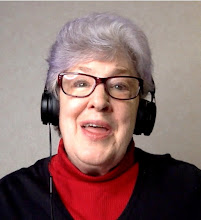I can't say I've never been so humiliated in my life. If I chose to look back on my life, I could probably find other times when I've experienced such humiliation.
But how would you feel if you were the only native speaker in a chorus that was going to perform an opera in your language, and rather than asking you to teach pronunciation, a young female member of the chorus was given the job?
I was stunned. The first time Sapporo Symphony Orchestra practiced the opera, “Peter Grimes” by Benjamin Britten, I was asked to read the lines. It was on the spur of the moment, but I was happy to help. Of course, I would have appreciated more notice so that I could have checked the text ahead of time.
Were they somehow not satisfied with my pronunciation? Is it because I'm American, not British? If that's the case, I can do British. In fact, I have an M.A. in theatre for which I was required to take a course in dialects. I can do not only British (do you want the Queen's English or Cockney?), but also Irish, Scottish, French, German, and a number of other accents.
I know the difference between standard AE and standard BRE (aka “received pronunciation“). I know, for example, that “can” is pronounced with the same “a” as “at” in both dialects, and “can't” is pronounced with a so-called broad A as in “father.”
When I cool down and examine why it is that I was not asked to teach pronunciation, I imagine the actual reason is because my Japanese is still lacking. I'll be the first to admit that I'm not able, at this point, to give long detailed explanations about the nuances of the pronunciation.
However, what I am good at, and this has been proven by teaching English pronunciation for years, is getting clear pronunciation out of non-native speakers by using drama techniques. I also get them to work on how they're moving their teeth, tongue, and lips. I have them notice what it feels like and looks like (in a mirror) rather than just listening to me and imitating me like parrots (which is not always the most effective way to teach, especially for those who don't have a good ear).
No one even approached me about teaching, though. No one knows about my Master's in theatre, or the fact that I've had years of experience teaching pronunciation. No one bothered to find out my credentials. And I didn't know, until I got to rehearsal, that I was going to end up sitting through an English pronunciation class! It would have been nice if someone had let me know so that I didn't sit there feeling totally humiliated.
[This was started in October, 2007. See the continuation on March 11, 2008, when yet another ”pronunciation teacher“ was brought in.]
Where are they at now? Peter Daou
-
Daou continues to be an odd duck in his own way, and perhaps has ditched
electoral politics entirely? No posts on his Substack since the start of
2024, n...
8 hours ago





1 comment:
Hi, CA.
Very interesting post. I sympathize 100%. It must've been very hard to hear a non-expert "teaching" English pronunciation when you could've contributed so much.
I can't understand why you were ignored or why the young Japanese was chosen to serve as the model. It makes no sense whatsoever!
Dennis in Phoenix
Post a Comment